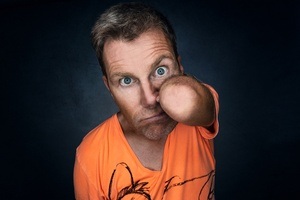tekst-Lesereihe: Doppel-Lesung mit Ciani-Sophia Hoeder und Gilda Sahebi
In the organizer's words:
From dishwasher to dishwasher. The lie of equal opportunities
When Ciani-Sophia Hoeder was 14 years old, she went to the Berlin food bank with her mother for the first time. She didn't tell anyone about it and was ashamed that her family was poor - because poverty is a dirty word, a symbol of personal failure. It was only later that she realized that it was actually a structural problem and that social advancement in Germany is nowhere near as easy as people like to suggest.
Ciani-Sophia Hoeder sheds light on the intersections of money, shame and power and shows how class mixes with other forms of discrimination. She talks to experts, activists, rich and poor people and makes it clear how a lack of equal opportunities characterizes this country - and how we can change that.
How we teach ourselves racism. An analysis of German debates
In her clear analysis, journalist and political scientist Gilda Sahebi shows that we all think in racist terms. This has nothing to do with extremism. Rather, it is a consequence of political and social structures that shape our thoughts and actions. Where majority and minority societies clash, racist thought patterns and structures almost inevitably form - unless you consciously counteract them. This is not the case in Germany. The accusation of racism is dismissed. People would rather be outraged than engage in a serious debate and solve real problems.
Gilda Sahebi analyzes the specifics of German racism. To do this, she looks back to the German Empire and traces the common threads of racist thinking that run from back then to the debates of our present day - for example on citizenship, the Middle East conflict and migration. It shows how we constantly perpetuate racist and divisive narratives, teach ourselves racism again and again - and thus endanger democracy.
In cooperation with: globale° - Festival for cross-border literature
This content has been machine translated.Price information:
Discount with KammerCard
Terms and Conditions for lotteries










